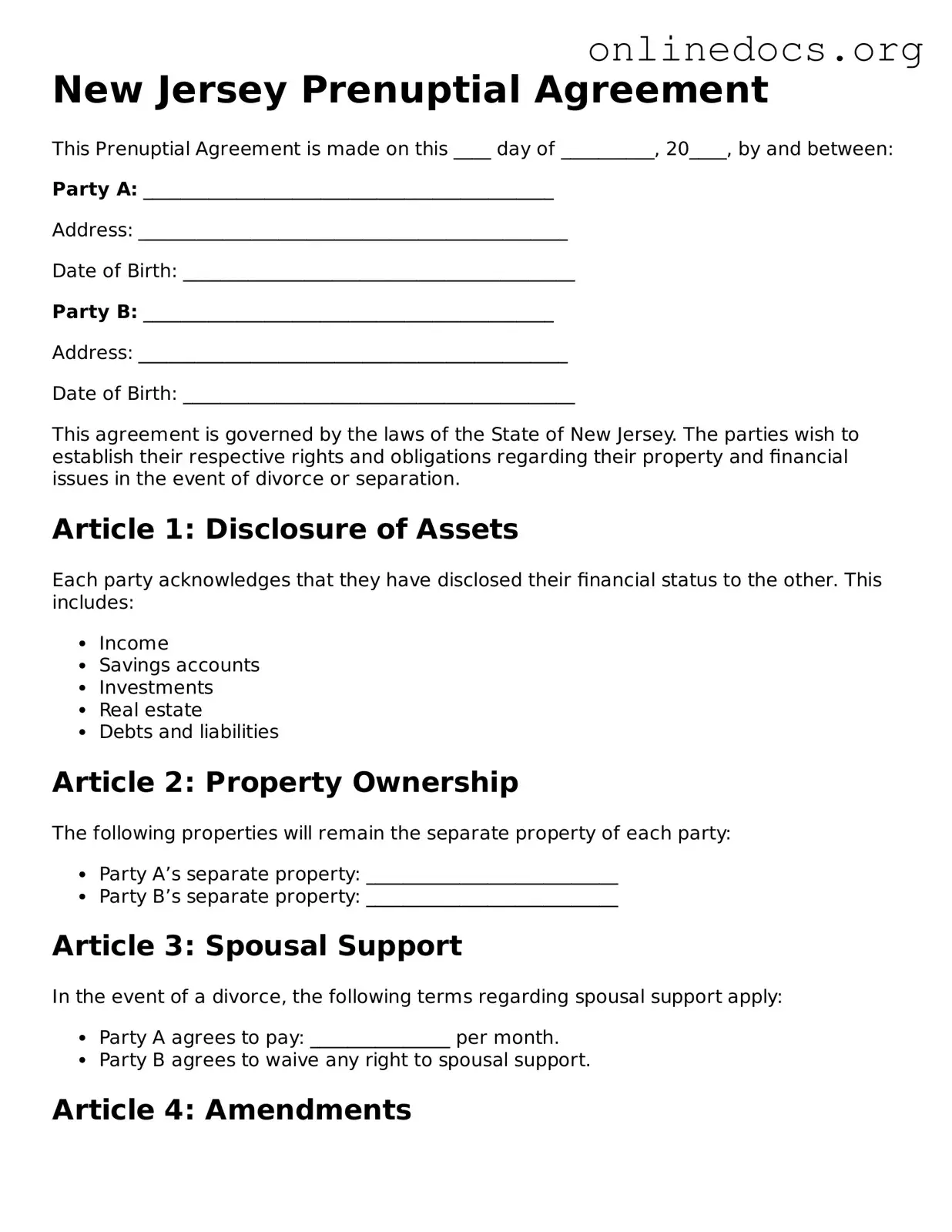When preparing a prenuptial agreement in New Jersey, it's crucial to approach the process with care. Many people make common mistakes that can lead to complications down the line. One frequent error is failing to fully disclose assets. Both parties should provide a complete list of their assets and debts. Omitting significant financial information can lead to disputes later, and in some cases, it may even invalidate the agreement.
Another mistake is not considering the future. Prenuptial agreements should not only reflect current circumstances but also anticipate potential changes. For instance, if one partner plans to pursue further education or if children are anticipated, these factors should be addressed in the agreement. Ignoring future possibilities can render the agreement less effective.
Additionally, many couples neglect to seek independent legal advice. Each partner should have their own attorney review the agreement. This ensures that both parties understand their rights and obligations. Without independent counsel, one party may feel pressured or inadequately informed, which could lead to challenges in enforcing the agreement later.
Timing can also be a pitfall. It’s important to finalize the prenuptial agreement well in advance of the wedding. Last-minute discussions can create stress and may lead to rushed decisions. Ideally, both parties should have ample time to review the terms and negotiate any points of contention.
Moreover, using vague language is a common mistake. Clarity is key in legal documents. If terms are ambiguous or open to interpretation, it can lead to confusion or disputes in the future. Be specific about what is included in the agreement and how certain situations will be handled.
Another issue arises when couples fail to update their prenuptial agreement after significant life changes. Changes such as the birth of a child, a significant increase in assets, or a change in financial circumstances should prompt a review of the agreement. Keeping the document current ensures that it remains relevant and effective.
Many people also overlook the importance of including a dispute resolution clause. This clause can outline how any disagreements regarding the agreement will be handled. Whether through mediation or arbitration, having a clear process can save time and reduce conflict if issues arise.
Lastly, some couples mistakenly believe that a prenuptial agreement is only for the wealthy. This misconception can lead to missed opportunities for protection. Regardless of financial status, a prenuptial agreement can provide clarity and security for both parties. It’s a valuable tool for anyone entering a marriage.
